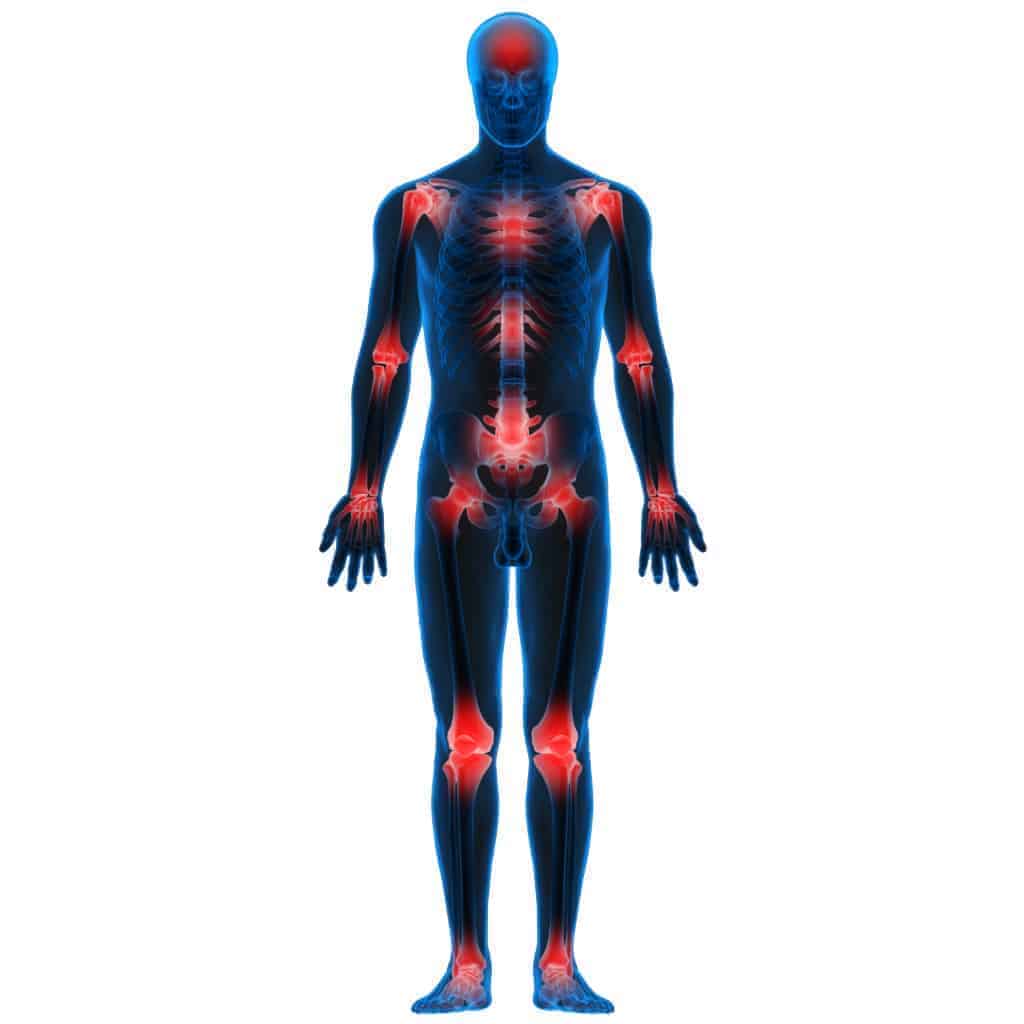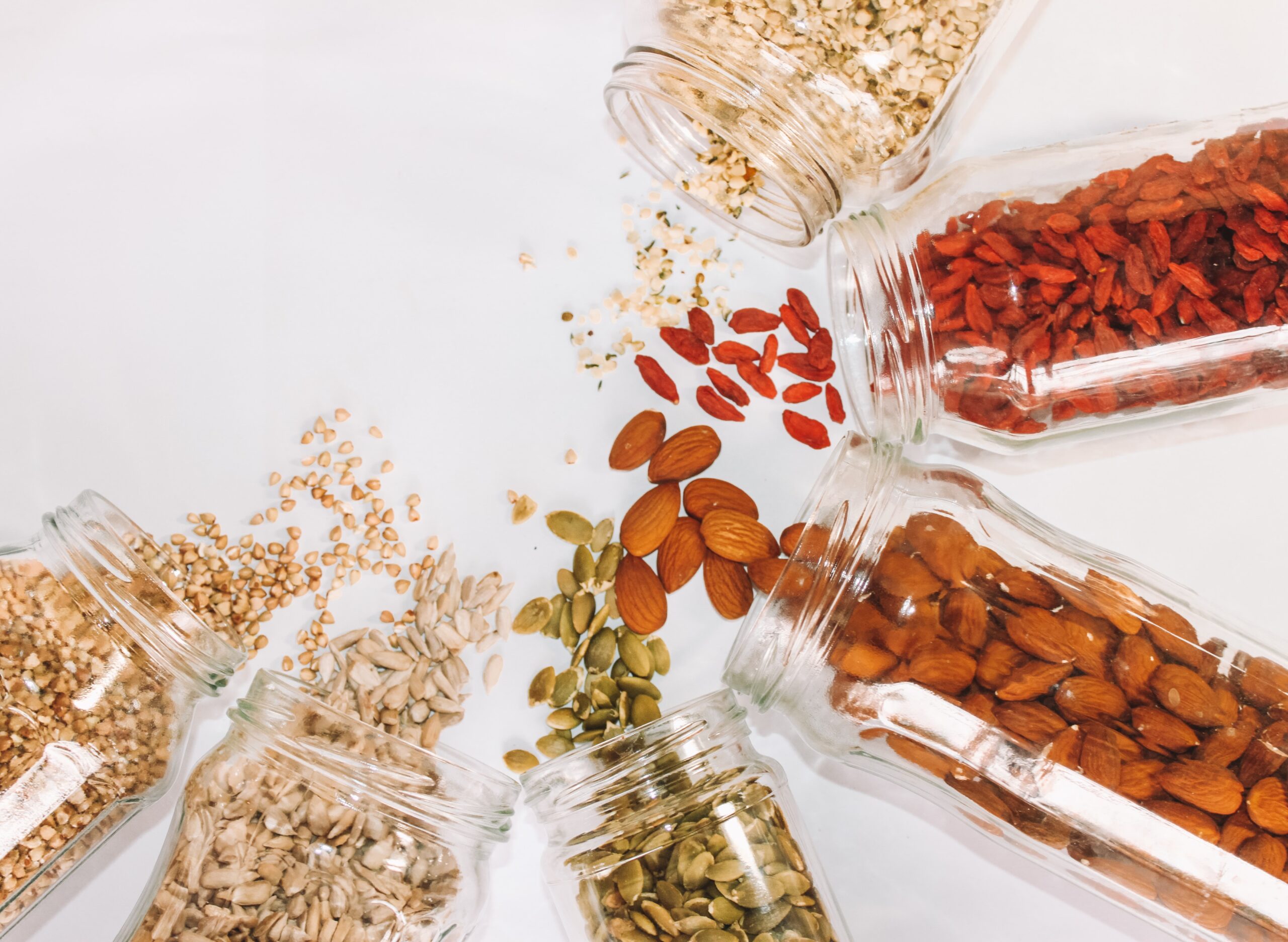Dealing with chronic pain, low energy, brain fog, high blood pressure, or weight struggles? If you’re experiencing some of these symptoms, inflammation might be the root of the problem. Keep reading to go over what exactly inflammation is, what happens in our bodies, and how to reduce it from a nutritional standpoint.
What is Inflammation?
Inflammation is a natural process that occurs in our bodies to help us ward off illnesses and protect us from harm. It is an important part of our healing process, both physically and internally. When your body recognizes something foreign, such as an invading bacteria, allergen, or chemical, your immune system is activated. This results in a process known as inflammation. Intermittent bouts of inflammation directed at truly dangerous invaders safeguard your health.
However, too much inflammation can cause people to suffer from chronic inflammation. This occurs when the body is in a constant recurring low level of inflammation, which can lead to many issues like stroke, plaque build up, and a higher risk of various diseases including cancer, heart disease, diabetes, arthritis, depression, and Alzheimer’s. (1)

What Happens in the Body When We Are Inflamed?
Every part of the body can be affected when we are experiencing chronic inflammation. This is because if you have chronic inflammation, your body’s inflammatory reaction can damage healthy cells, tissues, and organs over time. This can even cause DNA damage, tissue death, and scarring in the long run. All of this damage can lead to several diseases in many parts of the body. (1)
The Heart
Research shows an association between inflammatory markers and cardiovascular disease risk prediction. Stroke, heart attacks, and other Cardiovascular issues can also occur because of atherosclerosis, which is a proinflammatory condition with all of the characteristics of chronic low-grade inflammation (1).
The Blood
Diabetes, which is a chronic inflammatory disease, is linked to inflammation and has an effect on blood sugar. Diabetes not only increases the risk of strokes and heart attacks, but it also increases the risk of complications like diabetic retinopathy, neuropathy, and nephropathy.
The Joints
Chronic inflammation can lead to autoimmune responses that localize in the joints. Research shows this long term inflammation has been linked to a worse prognosis and radiographic progression of RA in patients who have not received adequate treatment (1).
The Lungs
Lung complications including asthma and chronic obstructive pulmonary disease (COPD) can develop as a chronic inflammatory response. This is because long term immune stress and inflammation can lead to a decline in airway function and tissue generation in the airways.
The Brain
In older adults, chronic low-level inflammation can cause brain damage and destroy brain cells, which speeds mental aging and atrophy of your brain. These issues raise your risk for cognitive decline, dementia, Alzheimer’s, Parkinson’s.
The Gut
Inflammation in the gut over time can lead to Inflammatory Bowel Disease (IBD), a group of chronic inflammatory disorders of the digestive tract. It can manifest as ulcerative colitis, which causes long-term inflammation and ulcers in the lining of the large intestine and rectum, or Crohn’s disease, which causes inflammation of the digestive tract lining.
Reduce Inflammation with Lifestyle Changes

Many factors can cause inflammation, however we are able to control some of them. And when it comes to controlling this chronic inflammation, what you eat can have both a beneficial and negative impact. Beneficial foods are anti-inflammatory and should be eaten very often. These foods include things like fruits, vegetables, nuts, seafood, lean proteins, and whole grains. Negative foods that should be limited are inflammatory foods. These include things like ultra-processed foods, refined sugars, saturated fats, trans fats, and many kinds of preservatives (2).
Just like how chronic inflammation comes from many places, you can work on reducing it in many ways. Therefore, while your diet can make a huge difference on the negative impacts of inflammation, you can also try some other lifestyle changes. These include minimizing your intake of antibiotics and over the counter medications, exercising regularly, getting enough sleep, and working on reducing your stress levels to manage inflammation, as well (2).
Anti-Inflammatory Foods

Anti-inflammatory foods contain beneficial ingredients such as antioxidants and omega-3 fatty acids.
Antioxidants are compounds in food that combat chronic inflammation by helping to support immune cells to remove toxins. The compounds are usually in the form of vitamins such as vitamin A, C, and E, which are found in many whole foods. Antioxidants from food sources have the potential to prevent diseases caused due to oxidative stress including things like cancer, diabetes, arthritis, atherosclerosis, brain diseases, and premature aging. Some antioxidants also act as antimicrobial and antifungal agents (3).
Omega-3’s are another anti-inflammatory food. This compound is a “healthy fats” that has been shown to aid in the prevention of heart disease, cancer, arthritis, and other illnesses. Omega-3s have this anti-inflammatory effect by blocking cytokines and prostaglandins and have been found to benefit rheumatoid arthritis. These foods include things like nuts, seafood, and flaxseed (4).
10 Anti-Inflammatory Foods To Try Today
Berries
Berries are high in nutrients and have numerous health advantages. Berries have been demonstrated to lower inflammation and support good hair and skin, digestion, and immunological health since they are high in fiber, antioxidants, and key vitamins like vitamin C and E.
Green Leafy Vegetables
Green leafy vegetables contain a high concentration of antioxidants, including phytochemicals and bioactive compounds, which have the potential to prevent oxidative damage, improve metabolism, reduce inflammation, and boost immunity.
Lean Proteins
Consuming enough lean protein is essential for maintaining optimal glutathione levels, the body’s master detoxification enzyme. Try to add in some great lean protein sources such as seafood, poultry, eggs, and legumes.
Spirulina
Antioxidants in spirulina contribute to its anti-inflammatory and health-promoting properties. Spirulina consumption has been demonstrated to lower blood cholesterol levels, blood pressure, and insulin sensitivity, indicating that it may be useful in the treatment of metabolic syndrome. Spirulina may also aid in the preservation of brain function in neurodegenerative diseases and even lessen the intensity of some allergic reactions.
Nut
Nuts are high in antioxidants and help in detoxification. Fiber, omega-3 fatty acids, and protein, as well as important minerals like copper, manganese, and magnesium, are all abundant in them. Each of these nutrients is essential for lowering inflammation, maintaining heart health, cognitive function, producing energy, and preventing illness.
Citrus Fruit
Citrus fruits contain a phytonutrient called hesperidin, which has been linked to a lower risk of stroke. It is an anti-inflammatory and antioxidant molecule that promotes blood circulation. Hesperidin, which is found in oranges, grapefruit, lemons, and tangerines, has been demonstrated to lower blood pressure and boost heart health, in addition to lowering the risk of stroke.
Cruciferous Vegetables
Sulfur-containing vegetables such as kale, broccoli, brussels sprouts, and cabbage are known as cruciferous vegetables. They are high in fiber, vitamins B6, K, and C, as well as calcium, potassium, and manganese, which are all key cleaning minerals. Sulforaphane, a chemical necessary for the conversion of poisons to non-toxic waste for excretion, is likewise abundant in them.
Fermented Foods
Fermented foods are high in probiotics, or live bacteria, which improve the gut microbiome and provide a variety of health advantages. Antioxidants, anti-hypertensive, and anti-diabetic effects have all been discovered in them. Vinegar, pickled vegetables, yogurt, and kefir are examples of fermented foods.
Seafood
Fatty fish such as salmon, sardines, herring, mackerel, and anchovies are high in protein and long-chain omega-3 fatty acids such as EPA and DHA. These omega-3 fatty acids help to prevent inflammation, which can lead to metabolic syndrome, heart disease, diabetes, and renal disease. They help reduce inflammation because they are metabolized by your body into chemicals that have anti-inflammatory properties and help to reduce the inflammatory marker C-reactive protein (CRP).
Matcha
The high arginine and theanine content of matcha can aid to alleviate stress, while its antioxidant characteristics can assist to enhance the immune system and fight free radicals in the body. Matcha may also help with weight loss by increasing fat burning, according to research (5).
Whole Grains
Whole grains have been related to a reduction in inflammation for a long time. Even short-term use of whole grains like brown rice, barley, quinoa, and farro has been found to modify the important bacteria in people’s digestive tracts to lower overall inflammation in the body.
Conclusion
Inflammation is a common issue that many people experience. If you find that you often deal with symptoms like chronic pain, low energy, brain fog, high blood pressure, or weight gain or even weight loss, consider trying to make some anti-inflammatory lifestyle changes to avoid big, long term issues all over the body. Eating more anti-inflammatory foods means we can combat inflammatory damage and stay healthy in the long run.
Sources
Pahwa R, Goyal A, Bansal P, et al. Chronic Inflammation. [Updated 2021 Sep 28]. In: StatPearls [Internet]. Treasure Island (FL): StatPearls Publishing; 2021 Jan-. Available from: https://www.ncbi.nlm.nih.gov/books/NBK493173/
“Foods That Fight Inflammation.” Harvard Health, 29 Aug. 2020, https://www.health.harvard.edu/staying-healthy/foods-that-fight-inflammation.
Arulselvan, Palanisamy et al. “Role of Antioxidants and Natural Products in Inflammation.” Oxidative medicine and cellular longevity vol. 2016 (2016): 5276130. doi:10.1155/2016/5276130. https://pubmed.ncbi.nlm.nih.gov/27803762/
Simopoulos AP. Omega-3 fatty acids in inflammation and autoimmune diseases. J Am Coll Nutr. 2002 Dec;21(6):495-505. doi: 10.1080/07315724.2002.10719248. PMID: 12480795. https://pubmed.ncbi.nlm.nih.gov/12480795/
Bagheri, R, Rashidlamir, A, Ashtary-Larky, D, et al. Does green tea extract enhance the anti-inflammatory effects of exercise on fat loss? Br J Clin Pharmacol. 2020; 86: 753– 762. https://doi.org/10.1111/bcp.14176







